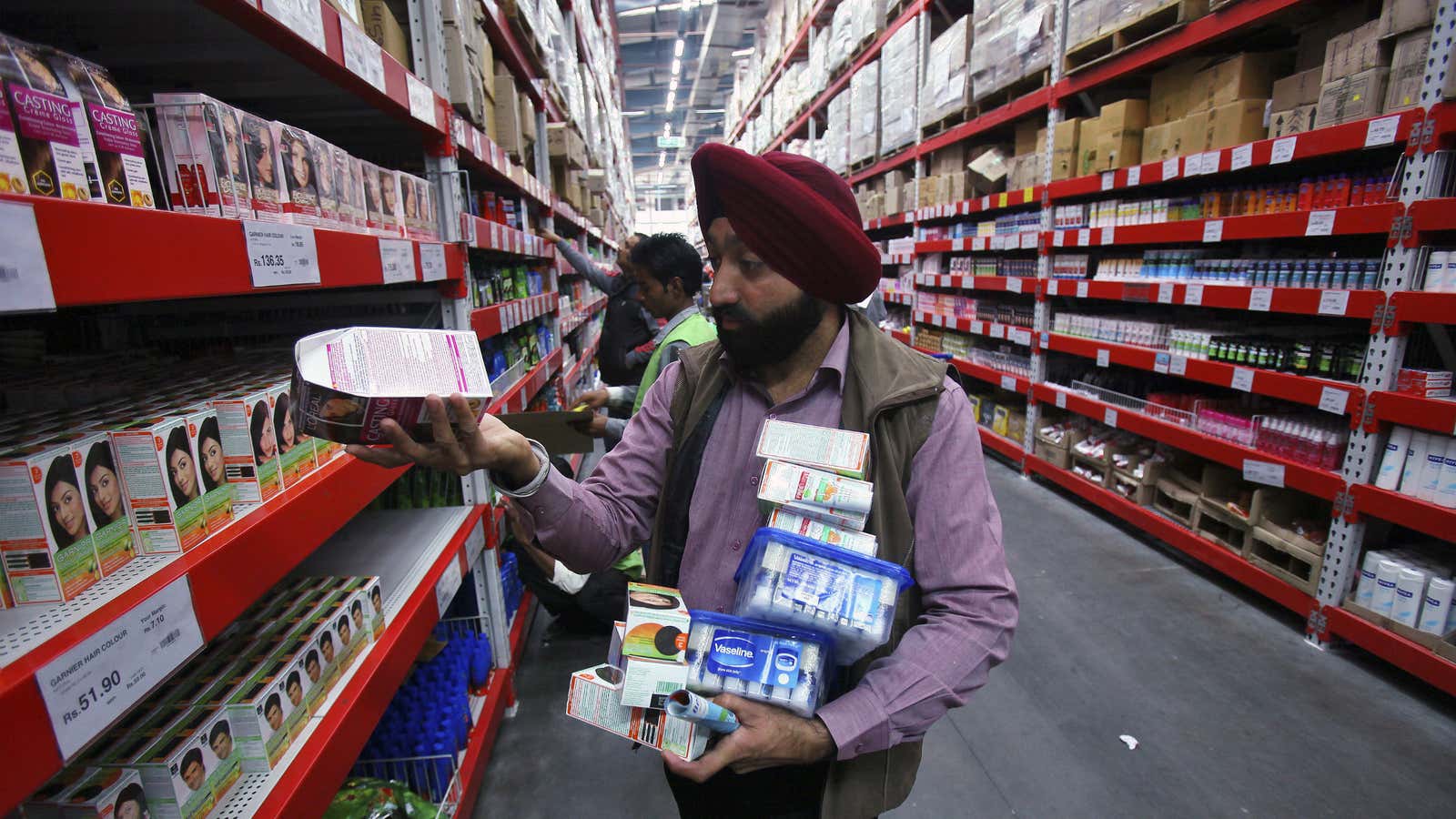After years of waiting on the sidelines for an open door, Wal-Mart is all but giving up on India as its next outpost for foreign growth. And that means India’s economy won’t get a bump from welcoming in the world’s biggest retailer.
Wal-Mart’s troublesome Indian operations have suffered another setback, with the company dissolving a six-year-old joint venture and shelving plans to open retail stores in the world’s second most populous country. Wal-Mart announced it would buy out Bharti Enterprises’s share of their wholesale joint venture. It is expected to continue toiling with the wholesale business it launched with Bharti while it waits for general elections next year (which it hopes would ease up restrictions on foreign retailers).
The supermarket giant has made its fair share of mistakes in expanding abroad. Last year it was embroiled in bribery and lobbying scandals in India and has had trouble expanding elsewhere abroad like Mexico.
But India’s restrictive regulations on foreign retailers are equally to blame for Wal-Mart’s troubles. The country has been struggling to push through meaningful reforms to boost foreign investment and trade, amid rising concerns about a significant slowdown in the much-hyped economy. Overnight, the International Monetary Fund cut its 2013 growth forecast for the Indian economy to just 3.75%, following the slowest growth in a decade of just 5% in 2012-13.
Wal-Mart has no retail stores in the country, even though it struck its joint venture with India’s Bharti six years ago in the hopes of eventually launching storefronts. Politically contentious reforms passed by parliament last year—which allow foreign “multi-brand” retailers to enter India as long as they have a domestic partner—were expected to help Wal-Mart move forward.
But under the existing laws, foreign retailers must still source 30% of their goods from small and medium-sized suppliers, which makes it hard to compete with domestic supermarkets that don’t face the same restrictions. That’s a deal breaker for a retailer that has built an empire on scale and ruthless control of its supply chain.
“I don’t understand how this 30% small and medium enterprise can be executed,” Wal-Mart Asia’s chief executive Scott Price told the Associated Press.
A Wal-Mart spokesperson told Quartz it is content to continue wholesaling while monitoring ” the environment for FDI in multi-brand retail.” But in an email to Quartz earlier this year, president of Wal-Mart India Raj Jain said its retail storefronts would help lower prices and ease the country’s inflation pressures. Now that kind of helping hand will have to wait.
